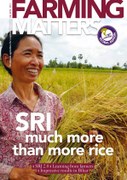AUTHOR
Month: March 2013
Articles
Editorial – SRI sets farmers free
March 25th, 2013
The story of the System of Rice Intensification (SRI) is an interesting one. It illustrates that relatively simple innovations can make a world of difference. It also shows that the transition to sustainable agriculture is a comprehensive social learning process involving many stakeholders – primarily farmers. Farming Matters | 29.1 | March 2013 Originating in … Read more
Call for articles – Education for change
March 25th, 2013
Deadline: June 1st, 2013 Family farmers face climate change, limited water availability, rising fuel costs and unknown market opportunities, while their lands are coming under increasing pressure. They require access to information, and the knowledge that can help them deal with the complexity of the context in which they live. Most rural areas nowadays have … Read more
SRI – A grassroots revolution
March 25th, 2013
However we look at it, the System of Rice Intensification, or SRI, is a major success story. Over the past decade it has helped millions of family farmers, notably in Asia and Africa, to improve their food security and food sovereignty. SRI methods simultaneously raise the productivity of the land, labour, water and capital employed … Read more
 SRI 2.0: How is SRI evolving, and what are we learning?
March 25th, 2013
SRI 2.0: How is SRI evolving, and what are we learning?
March 25th, 2013
Since the first successful SRI results outside Madagascar were reported from Indonesia, India and China in the year 2000, we can distinguish two major periods for SRI. The first period, referred to as SRI 1.0, lasted loosely from 2000 to 2008. The second is proving to be even more interesting. Transplanting the first SRI plot … Read more
 SRI in Peru: Crazy? Not at all!
March 25th, 2013
SRI in Peru: Crazy? Not at all!
March 25th, 2013
Although hardly enough to meet the national demand, rice yields in Peru are high, reflecting an apparently efficient production system. Working together with other farmers, and not always with the national research and extension system, farmers’ initiatives are showing that a much more efficient way is possible. I have been growing rice since 1998, on … Read more
 Opinion: Women – the primary link
March 25th, 2013
Opinion: Women – the primary link
March 25th, 2013
(March 2013) Fatou Batta looks at the key role women play in African agriculture.They do more than 70% of the work on the land, and are responsible for almost all processing activities. But do we understand clearly enough the roles of rural women farmers? How can we provide women with strategic support that can enable … Read more
SRI in Myanmar: Adoption and adaptation
March 25th, 2013
Between 2004 and 2010, the Groupe de Recherche et d’Echanges Technologiques (GRET) supported the introduction and dissemination of SRI in Myanmar’s Northern Rakhine State, as part of a series of projects aiming at ensuring food security. Based on this initial experience GRET started to introduce the System of Rice Intensification in the Ayeyarwaddy Delta in … Read more
Mind! New in print / More on SRI
March 25th, 2013
Enough is enough / Nourishing the world sustainably / The roads from Rio / Renewing innovation systems in agriculture and food / Agroecology and the transformation of agri-food systems / Advancing agroforestry on the policy agenda. Enough is enough: Building a sustainable economy in a world of finite resources R. Dietz and D. O’Neill, 2013. … Read more
 Locally rooted: Ideas and initiatives from the field
March 25th, 2013
Locally rooted: Ideas and initiatives from the field
March 25th, 2013
More than a recipe to follow, SRI is a set of principles adapted to specific environmental or socio-economic conditions. As “work in progress”, these ideas are the result of trials and experiments carried out at different levels. Nepal: Farmers Field Schools The northern Nepalese region of Lalbojhi- Bhajani is very fertile, but water is not … Read more
Opinion: Agro-ecology in action
March 25th, 2013
The System of Rice Intensification is a very good example of agro-ecology in action, argues Rik Thijssen.Some thirty years ago, near the town of Nagua in the Dominican Republic, small-scale rice farmers were experimenting with transplanting seedlings.Today, just like back then, farmers are taking the lead. Some thirty years ago, near the town of Nagua … Read more
Month: March 2013
The story of the System of Rice Intensification (SRI) is an interesting one. It illustrates that relatively simple innovations can make a world of difference. It also shows that the transition to sustainable agriculture is a comprehensive social learning process involving many stakeholders – primarily farmers. Farming Matters | 29.1 | March 2013 Originating in … Read more
Deadline: June 1st, 2013 Family farmers face climate change, limited water availability, rising fuel costs and unknown market opportunities, while their lands are coming under increasing pressure. They require access to information, and the knowledge that can help them deal with the complexity of the context in which they live. Most rural areas nowadays have … Read more
However we look at it, the System of Rice Intensification, or SRI, is a major success story. Over the past decade it has helped millions of family farmers, notably in Asia and Africa, to improve their food security and food sovereignty. SRI methods simultaneously raise the productivity of the land, labour, water and capital employed … Read more
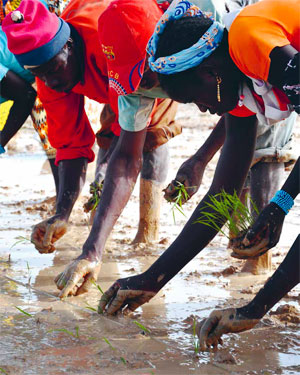 SRI 2.0: How is SRI evolving, and what are we learning?
SRI 2.0: How is SRI evolving, and what are we learning?
Since the first successful SRI results outside Madagascar were reported from Indonesia, India and China in the year 2000, we can distinguish two major periods for SRI. The first period, referred to as SRI 1.0, lasted loosely from 2000 to 2008. The second is proving to be even more interesting. Transplanting the first SRI plot … Read more
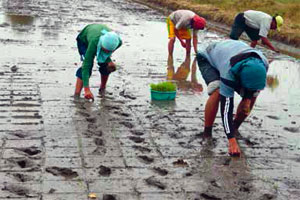 SRI in Peru: Crazy? Not at all!
SRI in Peru: Crazy? Not at all!
Although hardly enough to meet the national demand, rice yields in Peru are high, reflecting an apparently efficient production system. Working together with other farmers, and not always with the national research and extension system, farmers’ initiatives are showing that a much more efficient way is possible. I have been growing rice since 1998, on … Read more
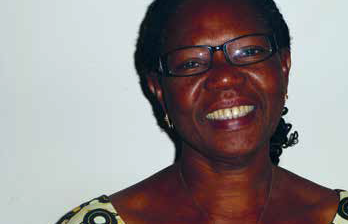 Opinion: Women – the primary link
Opinion: Women – the primary link
(March 2013) Fatou Batta looks at the key role women play in African agriculture.They do more than 70% of the work on the land, and are responsible for almost all processing activities. But do we understand clearly enough the roles of rural women farmers? How can we provide women with strategic support that can enable … Read more
Between 2004 and 2010, the Groupe de Recherche et d’Echanges Technologiques (GRET) supported the introduction and dissemination of SRI in Myanmar’s Northern Rakhine State, as part of a series of projects aiming at ensuring food security. Based on this initial experience GRET started to introduce the System of Rice Intensification in the Ayeyarwaddy Delta in … Read more
Enough is enough / Nourishing the world sustainably / The roads from Rio / Renewing innovation systems in agriculture and food / Agroecology and the transformation of agri-food systems / Advancing agroforestry on the policy agenda. Enough is enough: Building a sustainable economy in a world of finite resources R. Dietz and D. O’Neill, 2013. … Read more
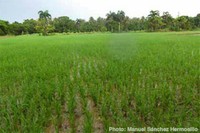 Locally rooted: Ideas and initiatives from the field
Locally rooted: Ideas and initiatives from the field
More than a recipe to follow, SRI is a set of principles adapted to specific environmental or socio-economic conditions. As “work in progress”, these ideas are the result of trials and experiments carried out at different levels. Nepal: Farmers Field Schools The northern Nepalese region of Lalbojhi- Bhajani is very fertile, but water is not … Read more
The System of Rice Intensification is a very good example of agro-ecology in action, argues Rik Thijssen.Some thirty years ago, near the town of Nagua in the Dominican Republic, small-scale rice farmers were experimenting with transplanting seedlings.Today, just like back then, farmers are taking the lead. Some thirty years ago, near the town of Nagua … Read more

